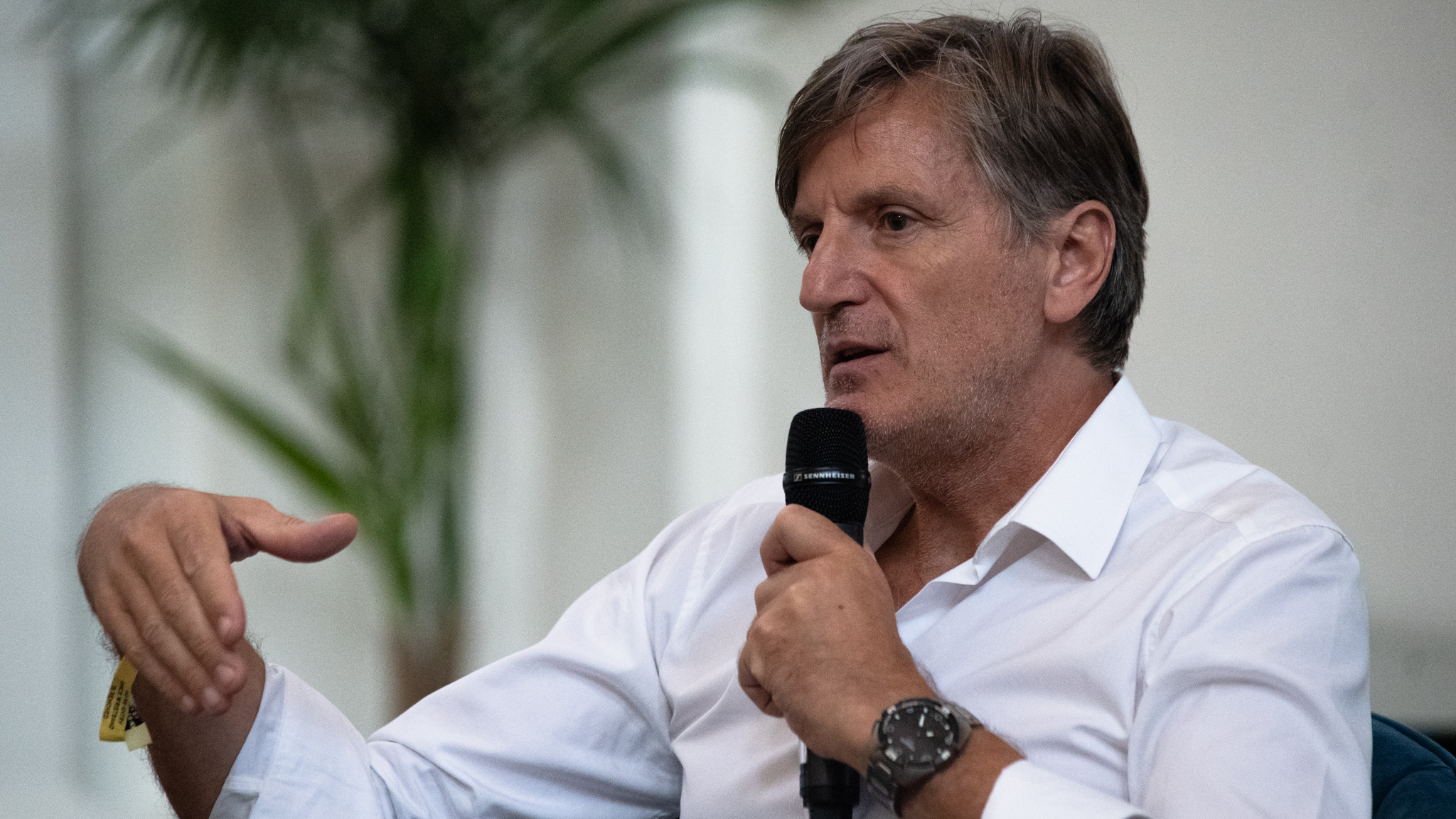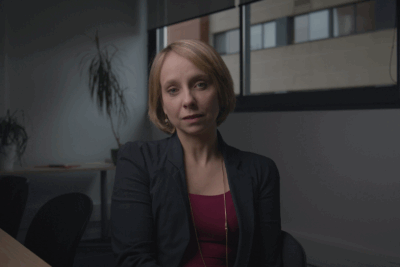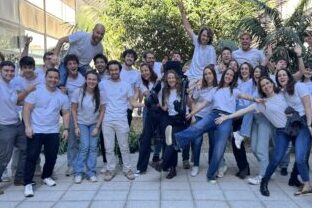7th July 2023
In an exclusive interview, Balázs Fürjes, Managing Director at EIT Health InnoStars, sat down with Jean Marc Bourez, CEO of EIT Health, to delve into the organisation’s mission of creating valuable networks and driving collaborative innovation in the healthcare sector. Bourez shared his experience in establishing strong relationships with the European Commission. He also shed light on EIT Health’s ongoing efforts to bridge the innovation gap in Europe and the exciting prospects of a new European partnership in personalised medicine.

Balázs Fürjes, Managing Director at EIT Health InnoStars: At EIT Health, we prioritise creating strong networks and fostering collaboration with industry and EU institutions. We talked about it at the InnoStars Partner Meeting in June. Can you tell us about your experience in this area?
Jean Marc Bourez, CEO of EIT Health: Absolutely, at EIT Health, we place special emphasis on regular interaction with the European Commission. When I started as interim CEO, I connected with Directorates General (DG) to ensure they had a comprehensive understanding of EIT Health. This included our mission and our collaborative efforts with industry, academia, research organisations, incubators, accelerators, university hospitals, and regional stakeholders.
The DGs were not fully aware of the detailed regional impact of EIT Health. However, through our engagement, they discovered that one of EIT Health’s unique selling points are the Co-Location Centers (CLCs). The CLCs are strategically positioned to support the innovation ecosystem locally through dedicated regional teams. By collaborative efforts of the CLCs and our Partners in the innovation ecosystem, we have achieved tangible results.
One of our main objectives is to establish a strong relationship with the European Commission and DGs. To achieve this, we selected the Venture Centre of Excellence (VCoE) as a concrete example of EIT Health’s success. This programme, developed in collaboration with the European Commission, the European Investment Fund (EIF), DG for Research and Innovation( DG RTD), and DG for Education and Culture (DG EAC), aims to create a pan-European network of selected VC funds. These funds collaborate with corporate industries to finance and co-invest in start-ups across Europe. Our goal was to mobilise 2 billion euros of co-investment capability, and we are proud to have reached 2.4 billion euros, investing in 75 European-based start-ups and SMEs. One valuable lesson we learned is how effectively we engaged Partners within the EIT Health community for such programmes. Currently, the European Commission is looking at how it can further support early-stage companies.
When it comes to the innovation gap we are facing in Europe, we need to set up a new tool to support spin-offs and spin-outs and mobilise selected VC funds that would be willing to invest in projects in the last maturation phase – around 18 months before the creation of a company.
One of the tools that may help and accelerate the process is the Deep Tech Venture Builder programme – currently, we are leading a series of roundtables across Europe with our Partners, different EIT KICs, industry investors, university hospitals, TTOs, research organisations and so on to discuss how to support the creation of new innovative companies in Europe.
B.Furjes: It’s fascinating how you developed the VCoE by recognising needs and bringing major players together for collaboration. Building ties with the European Investment Fund is another noteworthy achievement. It’s interesting to see how we can lower funding amounts for smaller start-up regions and work on the Venture Builder programme and VCoE, which have closer ties to universities. The participation of InnoStars and EIT RIS Partners becomes even more crucial since the European Commission aims to increase participation from these regions. How can we contribute?
J.M. Bourez: Last year, we discussed the VCoE programme and its continuation with EIF. We asked EIF what value we bring to them by developing a VC-like programme that involves not only industrial partners but also academia. EIF explained that its expertise lies in shaping the VC fund market in Europe, while EIT Health’s expertise is in connecting universities, research organisations and industry.
B. Furjes: That’s very interesting because it opens opportunities for greater involvement and improvement within our community. We have a wealth of energy and knowledge that we can contribute to. You mentioned having a couple of new ideas, such as proposals regarding talent. Could you share a few details? These opportunities can be leveraged, but it is essential for the entire organisation and our Partners to work together because successful implementation is key. We’ve heard about several players with complementary resources and assets, and now we need to ensure they work together effectively.
J.M.Bourez: Indeed, a few months ago, I had the opportunity to pitch EIT Health at the European Commission for a new European partnership in the field of personalised medicine. The aim was to create a pan-European partnership to enhance the capacity of research organisations in advancing research transfer and ensuring access to the market for personalized medicine. After six months, we submitted a proposal to the European Commission, in which EIT Health potentially plays a strategic role in managing innovation projects across Europe. This partnership involves 350 million euros of public funding from member states and the European Commission. It focuses on three areas: applied research, the innovation pathway, and the implementation of personalised medicine solutions. It also aims to develop advanced therapeutics in personalised medicine, including diagnostic tools and novel biomarkers. Furthermore, it supports healthcare professionals in utilising pharmacogenomic data for treatment decision-making processes. EIT Health has been selected to have a special position within this partnership, similar to the European Medicine Agency. We are awaiting approval from the European Commission, and if it’s positive, we will officially launch the partnership by the end of the year. We will actively involve members of the EIT Health community in this initiative.
As CEO my responsibility is to ensure that EIT Health is selected by DGs as an implementation platform. This means working with our Partners to implement new programmes that benefit them. I believe, that by fostering strong collaborations within our community, we will continue to champion the implementation of innovative programmes that not only meet the evolving needs of our Partners but also bring significant benefits to the wider healthcare landscape.
EIT Health and the EDIT-B consortium transform bipolar disorder diagnosis with groundbreaking blood test

Discover this life-changing project today.
Three EIT Health innovators nominated for EIT Awards

Meet our three EIT Award nominees.
Hospital Clínic study reinforces patient participation as key to digital health innovation

New work published in Journal of Medical Internet Research.